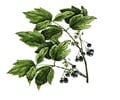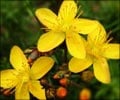The consumption of popular Chinese herbal products containing carcinogen aristolochic acid is linked to an increased risk of urinary tract cancer, a new study has found.
The consumption of popular Chinese herbal products containing carcinogen aristolochic acid is linked to an increased risk of urinary tract cancer, a new study has found.
Many countries, such as Taiwan, have banned products containing aristolochic acid because of clinical cases of urothelial cancer in association with aristolochic acid use.However, no such associations have been documented in herbal products containing aristolochic acid.
To examine this association, Jung-Der Wang, , of the Institute of Occupational Medicine and Industrial Hygiene, College of Public Health, at the National Taiwan University, and colleagues conducted a population-based case-control study of Taiwanese patients newly diagnosed with urinary tract cancer from January 1, 2001, to December 31, 2002.
They also looked at a random sample of the entire insured population from January 1, 1997, to December 31, 2002. There were 4,594 case patients and 174,701 control subjects in the final analysis.
The researchers examined the association between having been prescribed Mu Tong, an herb that contains aristolochic acid, and urinary tract cancer using data from the National Health Insurance reimbursement database.
Having been prescribed more than 60 g of Mu Tong (possibly adulterated by Guan Mu Tong before banned), or consumption of an estimated amount of more than 150 mg of aristolochic acid was associated with an increased risk of urinary tract cancer in a dose-dependent manner. The increased risk was independent of arsenic exposure (another risk factor for urinary tract cancer).
Advertisement
Source-ANI
SRM














